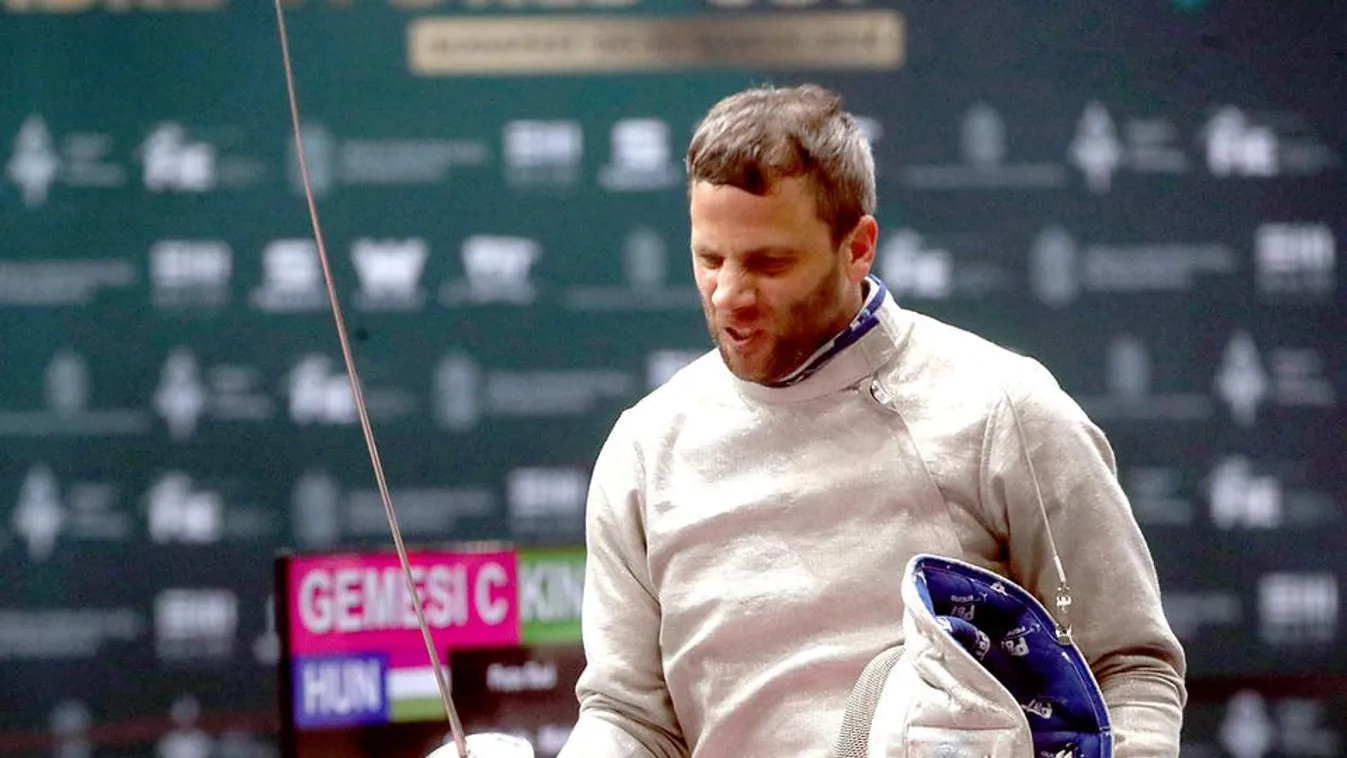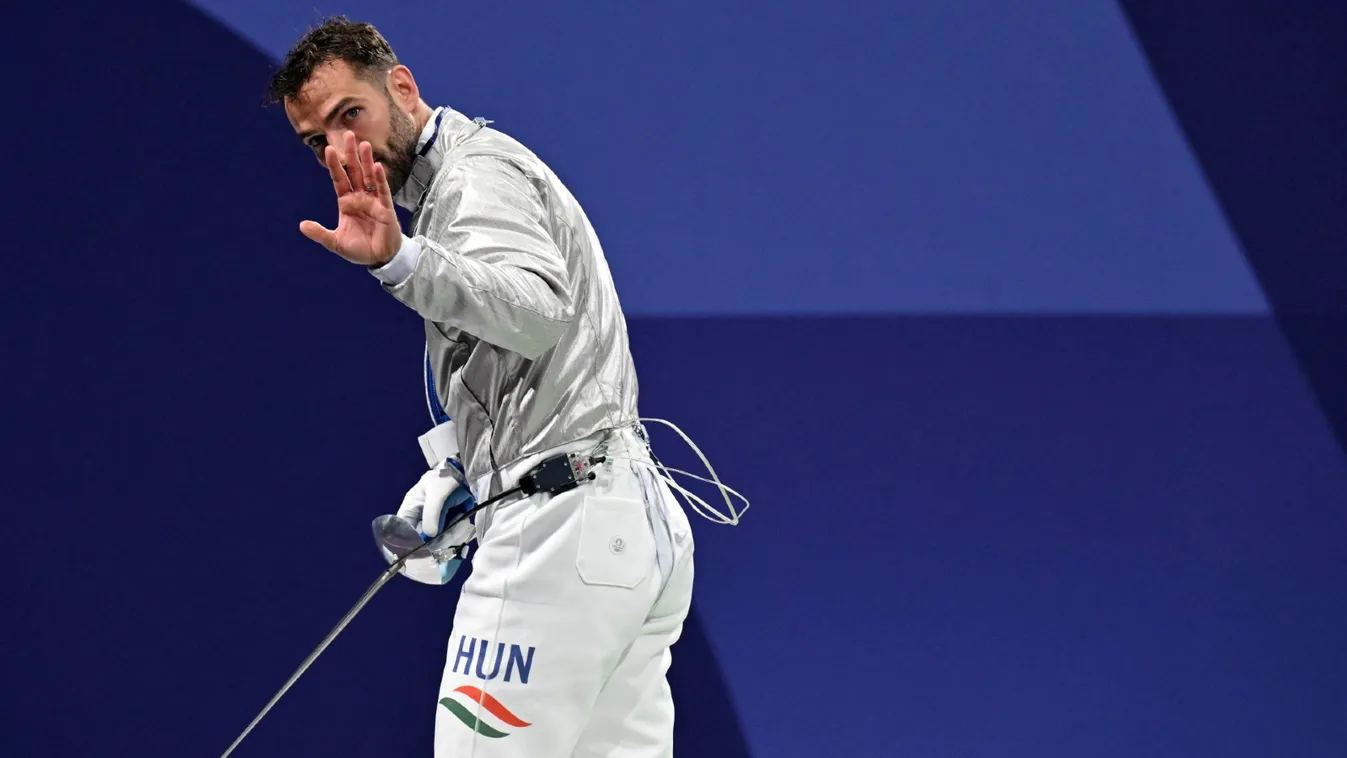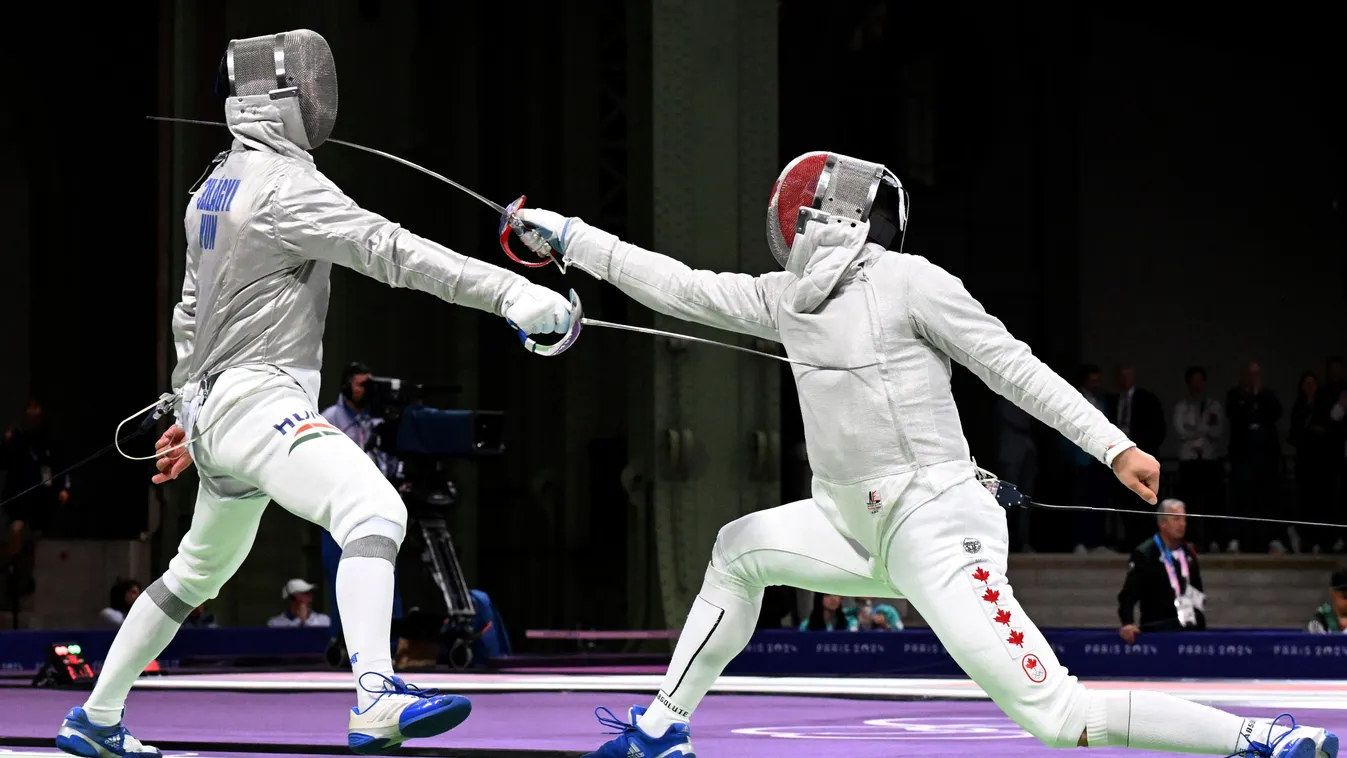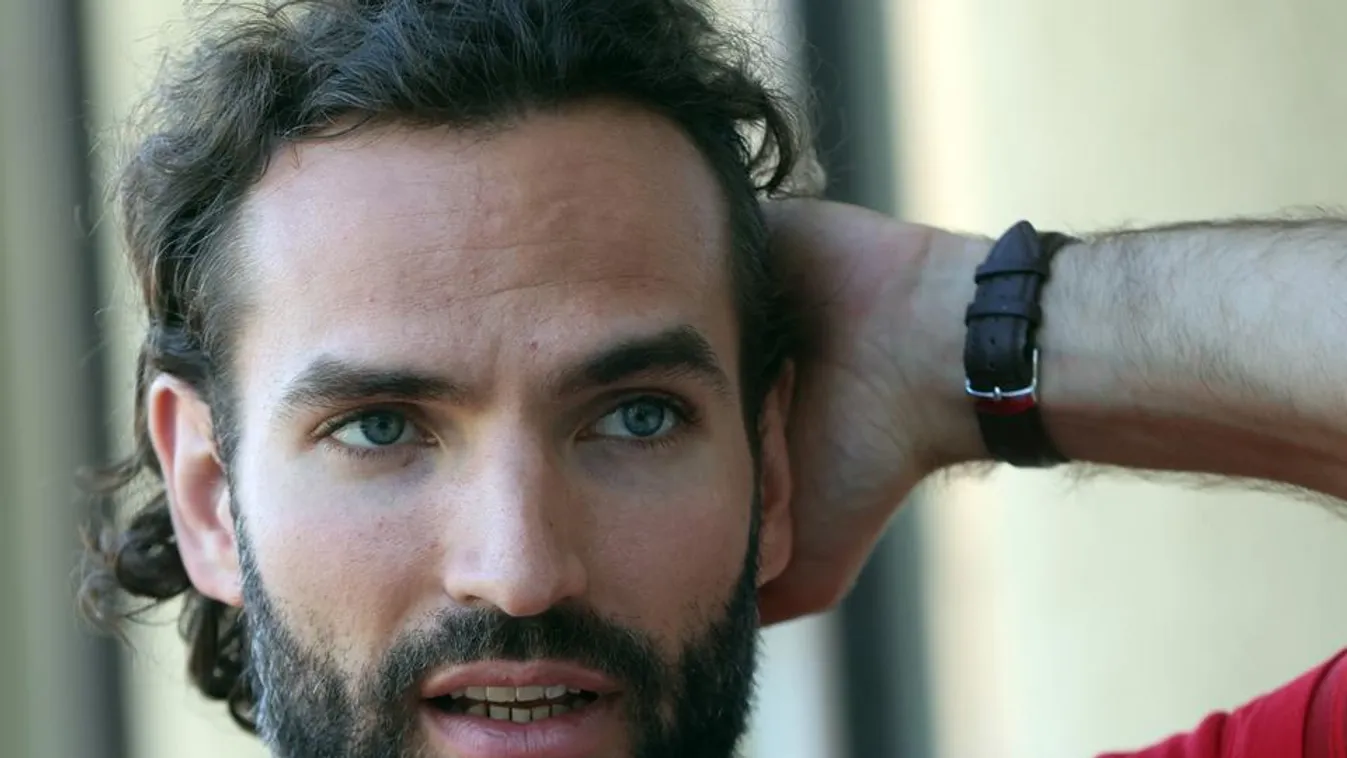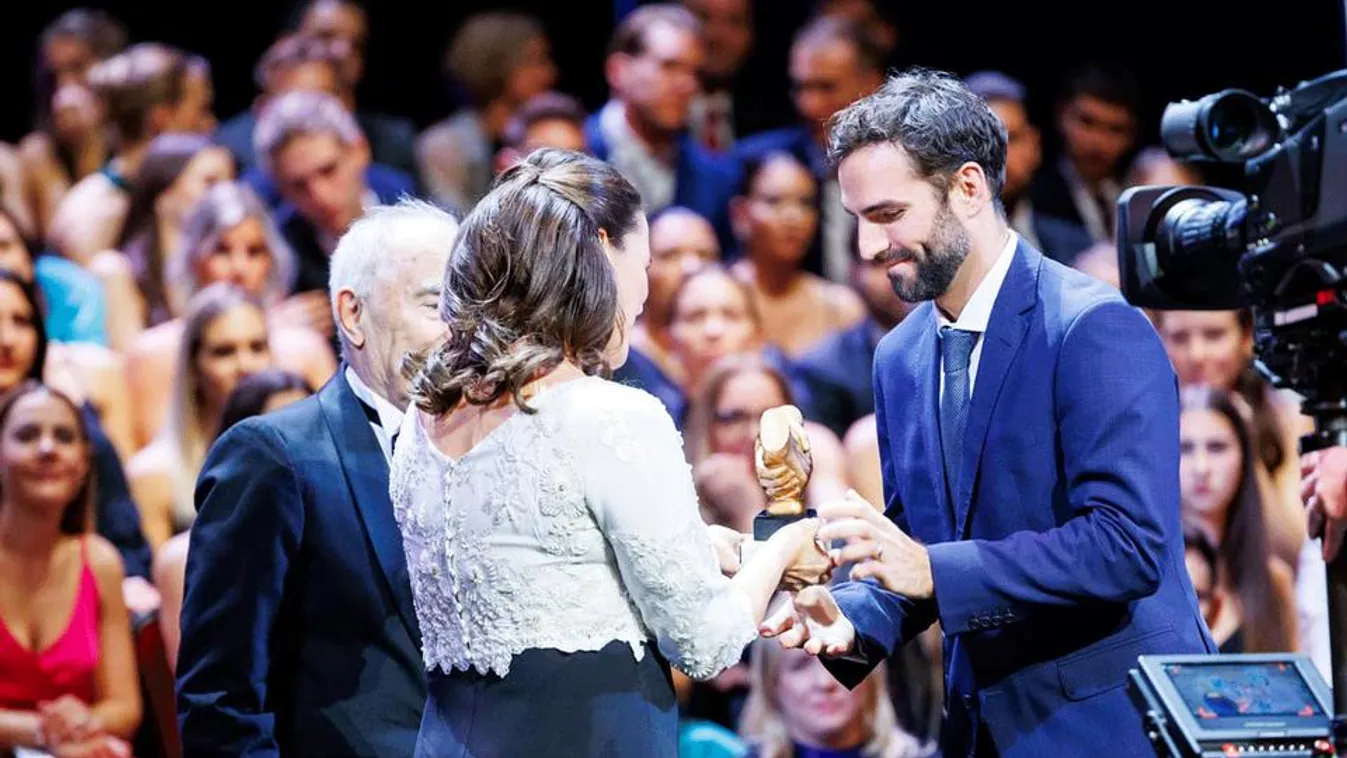– On Monday, you received the Hungarian Order of Merit's highest civilian medal, the Grand Cross, in the Parliament Building. You are the first athlete to receive the highest State Order in one's active career. How do you valuate this recognition?
– Every state award is related to an Olympic medal or gold, so I inevitably connect the two – said Áron Szilágyi, who made sports history in Tokyo by winning the individual saber competition for the third time in a row at the Summer Games. – I owe this latest recognition to the gold and the team bronze in Tokyo, and yet these awards mean a little different to me than the medals themselves. This is when I really feel what my role in society is, and what my duties as an athlete are off the piste.
– What duties do you have?
– Whenever I receive an award, I get a stronger and stronger feeling that it's a kind of service. It is also my job to represent my country in competitions and everywhere else and make people proud with my achievements.
– Do the years and the many achievements teach a person what their exact duties are?
– Learning may not be a good term for this, because we, athletes, grow up in this environment, we've already heard from the great legends what it is like to be in the national team and to wear the uniform with the coat of arms on it. And that's true! I remember the moment, it was fantastic when I got the national team jogger for the first time in my life, and then the first time the national anthem was played in my honor. These events make one gradually aware that one's individual interests and goals are followed by something else, something that goes beyond them.
– This is the third time you have been awarded a medal in the Parliament Building. Does the location add more to the recognition?
– Of course, it is a plus. I attended a very solemn ceremony this time as well, but it is an uplifting feeling to enter the Parliament Building in itself. It was also a plus that all the honorees went there to celebrate with their chaperones.
– On Monday, you received the Hungarian Order of Merit's highest civilian medal, the Grand Cross, in the Parliament Building. You are the first athlete to receive the highest State Order in one's active career. How do you valuate this recognition?
– Every state award is related to an Olympic medal or gold, so I inevitably connect the two – said Áron Szilágyi, who made sports history in Tokyo by winning the individual saber competition for the third time in a row at the Summer Games. – I owe this latest recognition to the gold and the team bronze in Tokyo, and yet these awards mean a little different to me than the medals themselves. This is when I really feel what my role in society is, and what my duties as an athlete are off the piste.
– What duties do you have?
– Whenever I receive an award, I get a stronger and stronger feeling that it's a kind of service. It is also my job to represent my country in competitions and everywhere else and make people proud with my achievements.
– Do the years and the many achievements teach a person what their exact duties are?
– Learning may not be a good term for this, because we, athletes, grow up in this environment, we've already heard from the great legends what it is like to be in the national team and to wear the uniform with the coat of arms on it. And that's true! I remember the moment, it was fantastic when I got the national team jogger for the first time in my life, and then the first time the national anthem was played in my honor. These events make one gradually aware that one's individual interests and goals are followed by something else, something that goes beyond them.
– This is the third time you have been awarded a medal in the Parliament Building. Does the location add more to the recognition?
– Of course, it is a plus. I attended a very solemn ceremony this time as well, but it is an uplifting feeling to enter the Parliament Building in itself. It was also a plus that all the honorees went there to celebrate with their chaperones.
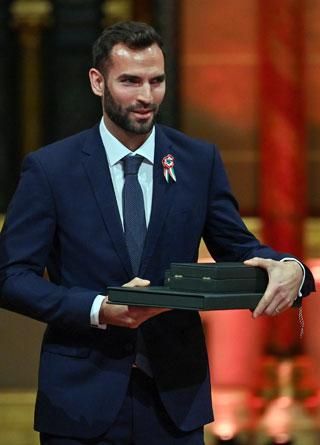
– You didn't have much time to celebrate as the BOK Hall hosts the men's individual saber and team World Cup competition from this Friday to Sunday.
– Unfortunately, I have a common cold, so I had to miss a few training sessions. I'm trying to rest for now, and then I'm ready for the World Cup series.
– For which you were training in London and Budapest.
– Yes, that's what happened: I've been training at home for the last two weeks, but before that, I was able to do some quality work in London as well.
– In what condition will you start the competition at home?
– It's very hard to say anything. The numbers show that, in terms of my physical condition, I am pretty much where I was at this time last year, that is I am in satisfactory shape for the World Cup in Budapest. But what this means from the fencing point of view is impossible to say or predict.
– You competed in the National Championships in December, as you said it is always of paramount importance to you. Before and after that, a Grand Prix and a World Cup competition were held, which you missed, so you will compete in Budapest for the first time since the Tokyo Olympics.
– My original plan was to start the season with the Warsaw-Padua-Budapest "trio,” but I didn't attend the first two. On the one hand, it is gratifying that I start with a domestic competition, as it is always good to compete in Hungary. On the other hand; however, I'm a little sad because even though the coronavirus pandemic is dying down in many countries, it still affects the season; multiple competitions got canceled because of it.
– Tokyo bronze medalist team consisting of Áron Szilágyi, András Szatmári, Csanád Gémesi and Tamás Decsi is really taking the piste in Budapest for the first time since the Olympics. Do you look at this competition a little differently?
– Regarding the team competition, all I can say is that this is the first step on the road that I hope will take us to Paris. Our team does not become a team in training but in competitions, and the first one happens to be in Budapest. We will start here, and hopefully, in the other World Cup competitions, the World and European Championships, we will become a team like we were before.
– What do you expect from this domestic competition? Do you have a spoken or an unstated goal?
– I don't. I just want to fence well, which is obvious, but we are so early in the Olympic cycle that I don't want to burden myself with extra goals.
Translated by Vanda Orosz
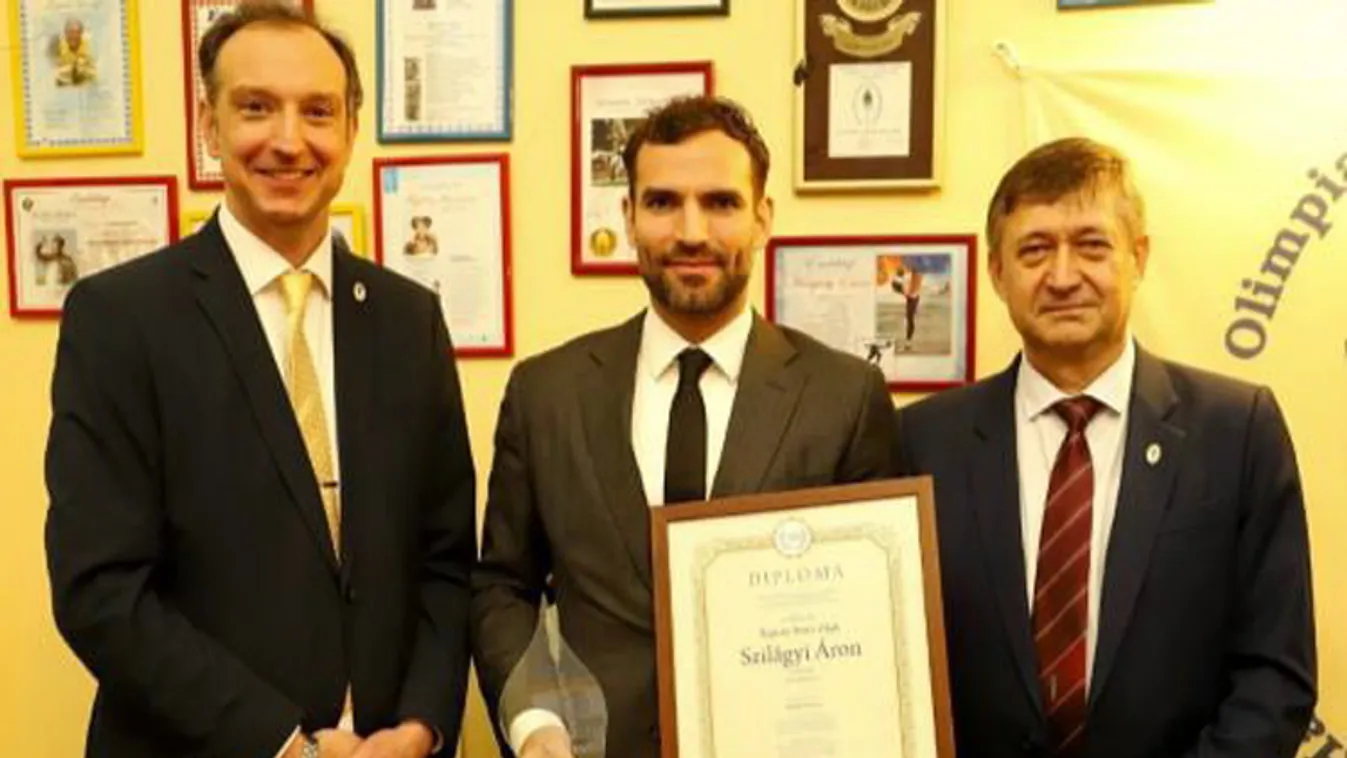
Rajczy Imre-díjat kapott Szilágyi Áron
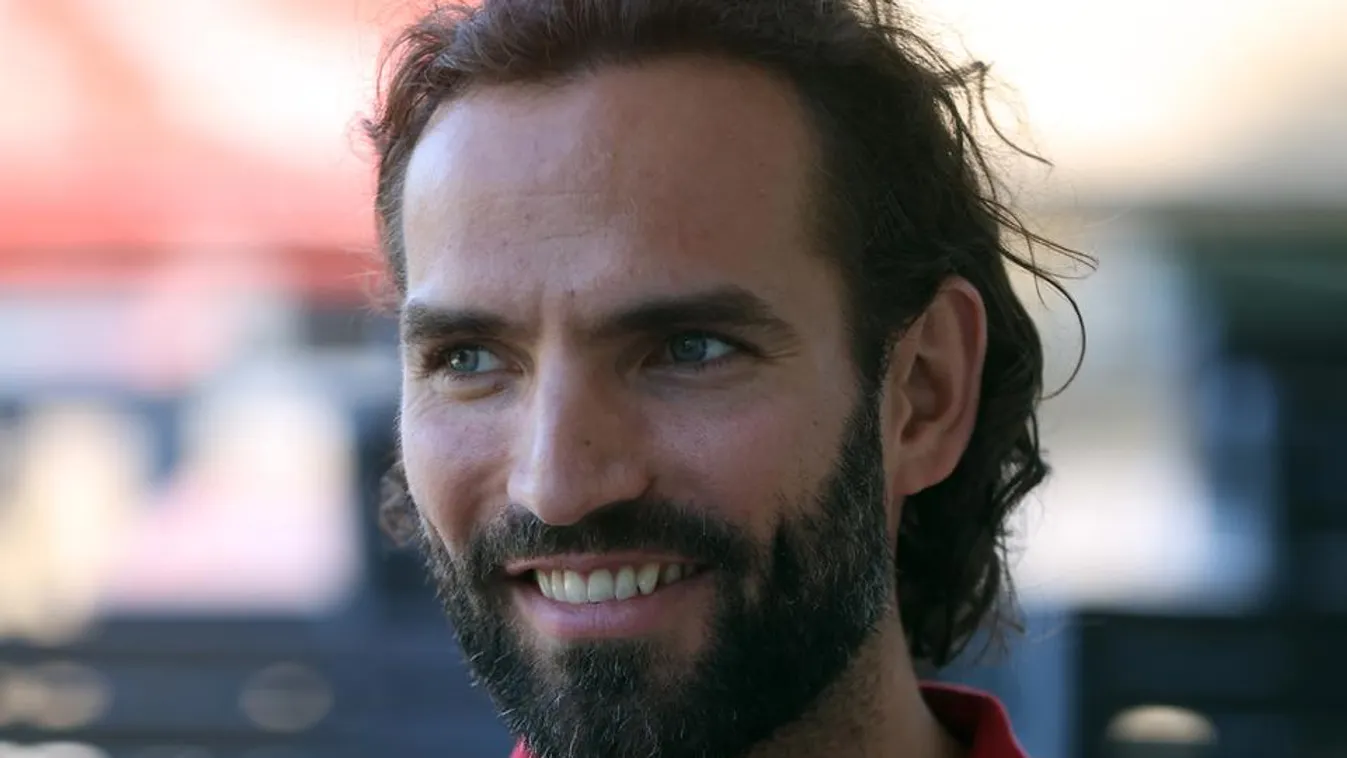
Vívás: Szilágyi Áron bronzérmes a tuniszi GP-n
